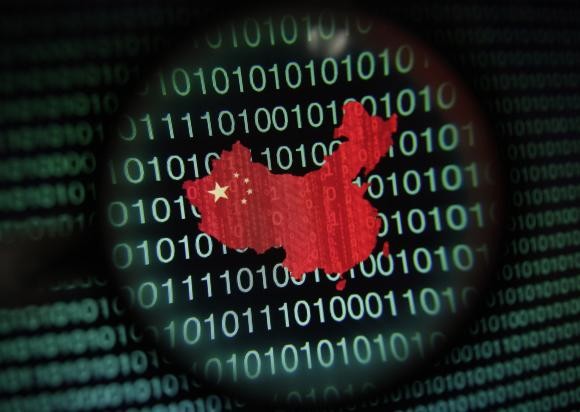The US cyberespionage court ruling, which indicted Chinese military officers, is not just any other ordinary court ruling. This is actually the first time that the United States has prosecuted and formally charged members of a foreign government with such a crime. But why did the US indicted these Chinese cyberspies? Trade war, perhaps?
Trade War the Main Reason Why
A report by Washington Post can reveal that the US Justice Department has indicted five Chinese military, personnel: Wang Dong, Sun Kailiang, Wen Xinyu, Huang Zhenyu, and Gu Chunhui, before the grand jury. They were Unit 61398 officers in the Third Department of the Chinese People's Liberation Army (PLA).
According to Justice News, the indictment accuses Wang, Sun, Wen, and others, for hacking or attempting to hack into US entities. Meanwhile, Huang and Gu were accused of supporting the conspiracy by making the infrastructure, like the domain accounts, which were used for hacking.
The entities who claimed victims of the cyberespionage are Westinghouse, SolarWorld subsidiaries, United States Steel, Allegheny Technologies, United Steel, Paper and Forestry, Rubber, Manufacturing, Energy, Allied Industrial and Service Workers International Union (USW) and Alcoa, reports Justice News.
The Chinese hackers, using military and intelligence resources, were accused of downloading substantial, confidential information, including strategic plans, reports USA Today.
This case is more likely to trigger the Obama administration to take further actions against China. As of 2013, China's trade surplus with the US stood north of $318 billion. Meanwhile, cyberespionage costs US companies up to $120 billion annually.
Take the case of SolarWorld who lost a huge share of its American market after Chinese hacker Wen Xinyo, aka "WinXYHappy," hacked SolarWorld's computers, stealing thousands of confidential files, ranging from pricing details to production information, thus, enabling Chinese competitors to gather relevant data without the need to conduct detailed research. Chinese competitors then dumped cheap products to the US, thereby undermining competition, Washington Post noted.
Then, there's the case of U.S. Steel, who descriptions for more than 1,700 other company computers when Wang Dong, aka UglyGorilla, made his way into company files. Wang managed to access company files after fellow PLA hacker Sun Kailiang, also known as Jack Sun, sent spear-phishing emails to company employees, including one purporting to be from the firm's chief executive. Unknown to their victims, these company emails actually contained malware that loads onto employees' computers and gains access to company files the moment they are clicked.
Cyberespionage Case Just the Tip of the Iceberg
It could be safe to say that the cyberespionage case filed by US is just the tip of the gargantuan trade war that has already (but quietly) ensued between the two countries.
In her column in USA Today, Trish Regan wrote:
"The United States may be on the brink of a trade war with a familiar rival - China - for unfamiliar reasons. Previous economic disputes with the world's second-largest economy have been about narrower issues: accusations of currency manipulation or anxieties about what the Chinese might do with their $1.2 trillion in U.S. debt."
Meanwhile, former Virginia Senator Slade Gordon speaking for Cio.com explained that cyber espionage and other forms of IP theft from foreign countries account for annual losses of $300 billion for U.S. companies. The group attributes between 50 percent and 80 percent of those losses to China.
US Goes Agressive
The US has gone aggressive this time after years of accusing Chinese government of backing cyber-attacks against government and private entities, reports LA Times.
"This administration will not tolerate actions by any nation that seeks to illegally sabotage American companies and undermine the integrity of fair competition in the operation of the free market," announced US Attorney-General Eric H. Holder, Jr., in a news conference in Washington.
The Chinese government reacted to the allegations and denied that these claims were "fabricated." China also warned the U.S. that it is putting the two countries' diplomatic and trade relations at risk.
In a statement, Chinese Foreign Ministry spokesperson Qin Gang announced that the "Chinese government, the Chinese military and their relevant personnel have never engaged or participated in cyber theft of trade secrets," calling the indictment as "purely ungrounded and absurd." Qin also accused the US of hypocrisy, referring to former National Security Agency contractor Edward Snowden's expose of US espionage and hacking of Chinese telecom companies.
Meanwhile, analysts were quick to point out that the indictment of the Chinese military personnel serves as an implied warning to China.
"The purpose in naming them specifically would be to show they were able to be caught and tracked down, i.e. the Chinese tradecraft was sloppy," said Dennis Blasko, a former attaché at the US Embassy in Beijing.
However, the US is careful with its action. June Teufel Dreyer, a professor at the University of Miami , noted that the government only wanted to charge only the accused officers, and not the entire army.
"It is possible what the Obama administration wants to do is limit the adverse reaction by not indicting the entire [military], but naming specific individuals," Dreyer explained.
China to avenge?
China issued stark warning that it would not let the United States' actions pass. If Washington continues to press charges, China will definitely do something to make even, reports CBC News.
"If the United States continues to insist on going its own way, China will take measures to resolutely fight back," said a Chinese State Internet Information Office spokesman to the state news agency Xinhua and the People's Daily, Chinese Communist Party's official publication.
We could only speculate about what China's next action will be. It could leverage on its financial clout to retaliate against the United States, given that it is the United States' top foreign creditor. As of February, China held $1.27 trillion in U.S. Treasury bonds, a data from the US Treasury Department can reveal.




























